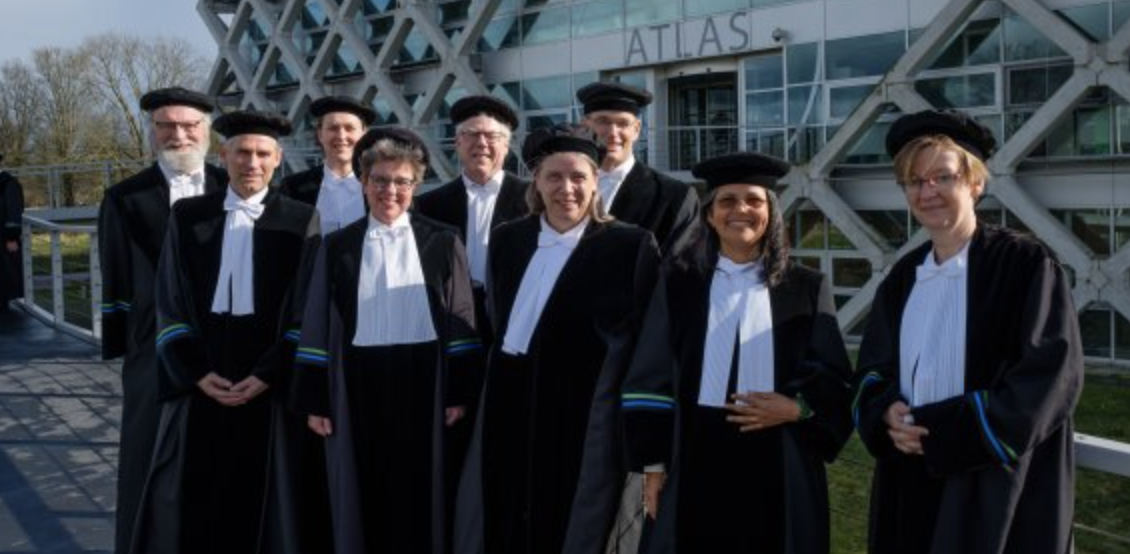There are still not very many women chair-holders in Wageningen. Of the 94 occupied chairs – about 10 are currently vacant – 15 are occupied by women. That is 16 per cent. Three new women were appointed to chairs last year: Martha Bakker, Emely de Vet and Josephine van Zeben. The number of women occupying chairs is growing slowly, because the post of chair-holding professor becomes available on average every 20 years. So with 100 chair-holding professors at WUR, you can appoint five women professors a year, at the most. That is why the Executive Board came up with a fasttrack career ladder for potential full professors: Tenure Track. Assistant professors can climb to the position of personal professor in 12 years if they meet stringent academic criteria. Associate professors can do so in six years. They have to teach 500 hours, write five scientific articles a year, supervise eight PhD students a year, and win a substantial research grant. The board believed that this system, in force since 2010, would speed up the rate at which women become full professors.
Nationality
In recent years, about 600 teachers have been appointed to a Tenure Track post at WUR. Over 40 per cent of them were women. Meanwhile, there are now 66 personal professors in Wageningen, 16 of them women – 24 per cent. The system is still in its infancy, but even in this category, women are advancing slowly. Interesting differences can be observed between the women chair holders and the personal professors. The 15 female chair-holding professors are all Dutch, with the exception of Rachel Creamer, who is British. By contrast, numerous nationalities are represented among the personal professors. Yuling Bai (China), Maria Barbosa (Portugal), Bettina Bock (Germany), Gerlinde De Deyn (Belgium), Violette Geissen (Germany), Marielos Peña- Claros (Bolivia) and Luisa Trindade (Portugal) have all become personal professors through the Tenure Track system. Would they have become professors without this career path? Not all of them, surely. Personal professors are mainly expected to obtain research funding and supervise postdocs and PhD students, whereas chair-holding professors have to manage a chair group and need to have a network. That puts newcomers at a disadvantage.
Netwerk
When it comes to networks, women (and foreign women in particular) get far fewer opportunities than men. The evidence for this comes from another list of professors: the Wageningen list of professors by appointment, who are sponsored by a company, organization or foundation. WUR has a total of 64 such professors funded by the Netherlands Institute of Ecology NIOO, the National Institute for Public Health and Environment RIVM, the FAO, the nature management organization Staatsbosbeheer, Rijnstate hospital, the meteorological institute KNMI, the Netherlands Agricultural and Horticultural Association LTO, the Dutch Butterfly Foundation, and the companies Shell, Unilever, Danone, Friesland Campina, Nutreco, Philips and BASF. And how many of these 64 professors are women? A mere five, less than eight per cent of the total. No doubt all the professors by appointment are highly qualified – after all, they have been assessed by the Academic Board. But nearly all of them were nominated by their employer, who also funds the chair, after which they were assessed and appointed without an open application procedure with competition. OK, these are only part-time appointments for a period of five years, but that is not the point. The point is that the only women who did get through all these hoops were Tinde van Andel, Ine van der Fels-Klerx, Saskia van Ruth, Louise Vet and Cor van der Weele – along with 59 men. And hardly any of the men are young or foreign. It’s an old boys network in the sciences at Wageningen. WUR might ask the external financiers of chairs whether there are no able women available.



 Professors on their way to the Dies Natalis celebration on 9 March. (Disclaimer: the men in the photo do not exemplify the ‘old boys network’ referred to in the article headline.) From left to right: Rick Leemans, Eddy Smid, Petra Hellegers, Ellen Kampman, Karin Schoën, Huub Rijnaarts, Cees Buisman, Marielos Peña-Claros and Carolien Kroeze. Photo: Guy Ackermans
Professors on their way to the Dies Natalis celebration on 9 March. (Disclaimer: the men in the photo do not exemplify the ‘old boys network’ referred to in the article headline.) From left to right: Rick Leemans, Eddy Smid, Petra Hellegers, Ellen Kampman, Karin Schoën, Huub Rijnaarts, Cees Buisman, Marielos Peña-Claros and Carolien Kroeze. Photo: Guy Ackermans